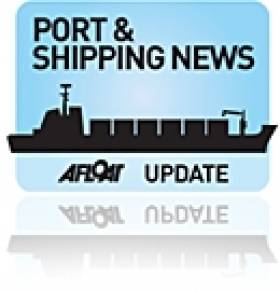Displaying items by tag: Fodder Crisis
Irish Ports Witness Surge in Animal Feed Imports
#FodderShipments – As Irish Farmers struggle with one of the worst fodder crisis in over 50 years, ports across the country have seen unprecedented levels of animal feed imports, according to the Irish Maritime Development Office (IMDO).
Most of the State's ports have seen notable throughput increases since the third quarter of 2012, after a poor summer period for farmers. The IMDO noted that the first quarter of 2013 saw volumes of animal feed increase by over 80% in terms of bulk shipments, on the corresponding period last year.
In the recently published Irish Maritime Transport Economist, the IMDO reported substantial annual growth in animal feed imports, which increased by 34% during 2012.
A number of farming interest groups have come together to support the importation of animal feed from the UK and France in recent months, resulting in increased activity on Irish Sea ferry services, particularly over the last three weeks.
The IFA sourced the first consignment of hay from France which arrived at Rosslare Europort on the 9 May aboard the ro-pax ferry Celtic Horizon.
During this month's bank holiday, ports also recorded increased fodder imports from bulk shipments.
The western and northern parts of the country appear most severely impacted and it is anticipated that fodder will continue to steadily arrive at Irish ports for the foreseeable future.
Fodder Crisis: Minister Considers Shipping Hay to Galway Harbour
#ShippingHay-Cargo deliveries of hay to Galway Harbour port is under consideration of Minister for Agriculture Simon Coveney in a bid to address the fodder crisis, according to Galway Bay FM.
Roscommon/South Leitrim Independent TD Denis Naughten says the Minister has confirmed he is exploring the idea of leasing a ship for such a delivery to Galway and other ports nationwide.
He says haulage of fodder by road is limiting the amount that can be imported and also costs substantially more than a large scale shipment.
Speaking to Galway Bay fm news, Deputy Naughten says farmers are increasingly concerned because of a lack of carryover of fodder and cannot afford to wait for supply.

























































